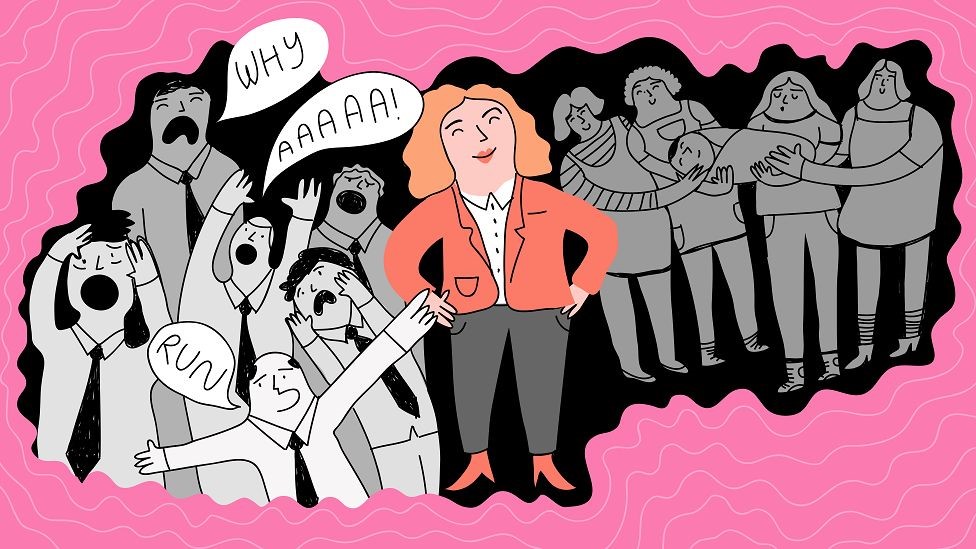Free to Obey; Obey to be Free
Out of the millions of girls born annually in the Indian subcontinent alone, the majority do not live to see another season or even another day. Some of the lucky survivors live in orphanages and/or foster homes, that is, if they outlive the challenge where their biological parents dump them as the first step. However, some make it to their actual homes upon birth. Families accepting and welcoming a girl child have increased in the past few years. And parents make sure they love and care for their girls in plentitude, with just a few necessary boundaries in return.
Let me start by telling you a wee tale.
Once a brown-skinned girl was born to middle-class parents. Usually, new parents immediately started worrying about the day their girl was to be married, sent into the real world. They did too but they immediately smiled. They were progressive. As parents, they’d make sure their girl obeyed them, learned discipline so that she could be prepared for her future. The baby was welcomed, fed honey and a lot of mamma’s milk. When she turned one, they pierced her ears. She cried angrily, the ungrateful wretch didn’t value the gold they’d brought for her. Shrill wails echoed and pierced the parents’ and their guests’ auditory membranes in return. Over the months that followed, she scratched and pulled at her ears, and began adding to the list of things her mamma would have to stop her from doing. During her growing years, she laughed loudly and had to be reminded of poise every-time. The girl kept disappearing behind the not-to-do list despite her maximum presence. But she failed to see the blurring. Life continued, until one day when her perfect partner showed up. Mamma hadn’t helped decide on a college. Study as much, study whatever, what would it really change. Choosing the guy was mamma’s right, though. And this one wasn’t right for the girl. No one was, no one could be. Having guys around meant the girl’s character was flawed. The parents were outraged, pitiable, talking to everyone about how their own child had cheated them with this tomfoolery. The girl and her perfect friend broke up. Eventually, the girl started hiding and distancing from the parents to keep them from any alleged shame. She was flawed from the day she was born, which had only elevated. Sadly, she or her parents could do nothing to change the modalities of her constantly developing imperfections.
Reader, do you suppose this narrative belongs to this one girl only? I dare to say it belongs to a majority of girls/women in India. A spliced version of each of our individually spiced lives.

My purpose behind narrating this generalized story, which in one way or another relates to every girl once in their lifetime, is to raise a question upon misogyny. Girls are victims of the society that continually disparages them. But are they really?
From the day a girl is born, no matter how progressive their households are, they’re conditioned into certain beliefs and mannerisms. Growing up, they find their own ways and sometimes later, protest. The preconditioning, however, stays in this comment or that.
Yes, societies and people forming these societies, allege growing girls precocious, scandalous, and make it difficult for them to pave their paths. Girls/women have to explain their actions and experiences. But girls too, form and add to this society. And they also regressively comment on other members of their fraternity. The relation between girls’ speech and intent sometimes remains biased and questionable.
A lot of girls fall in teen-love, breakup, call it an experience. Some find relationships pointless and remain focused on their academic and career pursuits. Some girls read love stories, talk dreamy, are born into loving and privileged families, yet they discourage the idea of love. None of them are wrong. All pursuits of envisaging life are correct. What is wrong, however, is one woman allowing her ambitions to become an egocentric action for another woman.
Because any girl’s childhood experiences, her upbringing, is a lens of her formative lifestyle, a possible source of her fickleness is domestic conditioning. How parents raise their daughters remains and reflects in the modalities of comportment in a woman’s body and/or language throughout her life. Then comes the struggle for change.
When she breaks up with one guy, maybe because her family disapproved, or that the guy was a jerk, insecurities set in. And even if she would be different from another guy, be herself, there would be instances where she would still want her body to behave in a certain way with a guy around. The male gaze becomes important, because either she’s been scandalized for demanding it, or been too meek to ask for it, or been told its objectification.
So maybe, it’s not the society itself that is to blame – it’s the home where one is to begin. To change a bitter outcome, the story needs to be changed.
There are several choices available from which to decide. Ultimately these choices seem irrelevant, illusionary. How can parents alone provide a solution to the accentuating a sense of this illusion?
Instead of gendered upbringing focussed on internalized objectification, colorism, and inequality; parents can begin by letting their girls decide for themselves. Instead of telling children how immature they are, for most of their lives, read through the depths of their kid’s knowledge. Instead of telling how having a relationship would ruin their societal image, parents can talk to their children about the options, and the ups and downs, before jumping in on deciding their kids’ fate.

Finally, to shed some light on why I chose this parable of misogynistic narrative to raise questions upon societal and familial indifferences: because I find women at fault about how other women are dealt with.
Women are not all sentimental, frivolous, fragile, duplicitous, yet women need their affection, pampering, hurt, love, scandals in equal shares. However, the oversimplified binary between ‘right’ and ‘wrong’ behaviors has not only diminished ethics but has also overturned the meaning of misogyny. Present horrific logic uses the puzzle of reverse psychology, as in the tale above when the girl is controlled by her parents she keeps her life from them, where sometimes a girl challenges male dominance by saying ‘no’. Feminist scholars such as Kate Manne, Caroline Criado Perez, and Linda Martín Alcoff have acknowledged the complicated portrayal of women’s bodily behaviors with and without the presence of a man in their lives. These works I reference as corroboration to my claim of women targeting both men and women as a result of reverse psychology from familial conditioning.
Author

